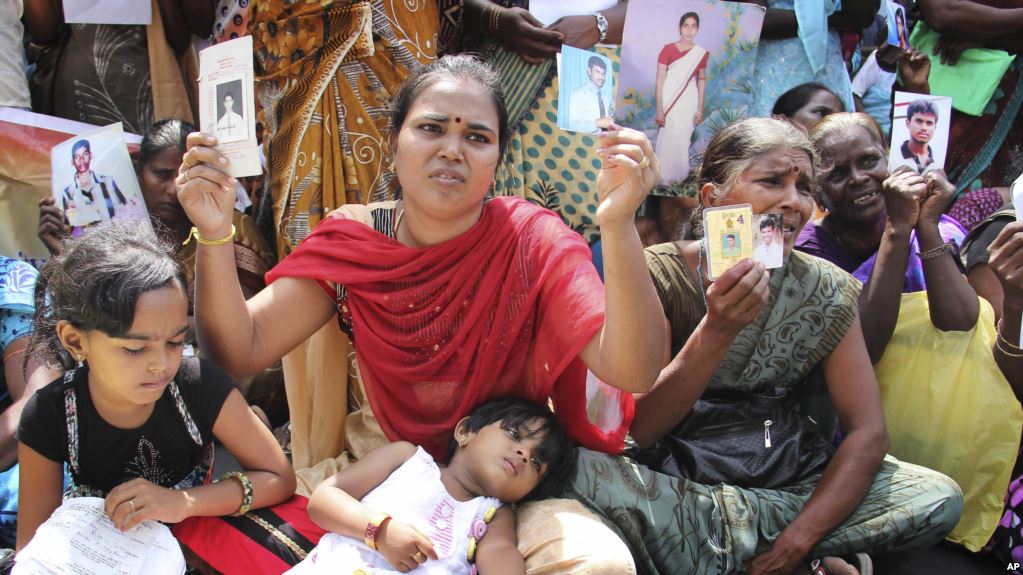The ICJ expressed alarm about comments made by Sri Lankan President Gotabaya Rajapaksa which offensively mischaracterized the situation of “missing persons” in Sri Lanka, many of whom have been the victims of the crime of enforced disappearances.
According to a statement released by the President’s office after President Rajapaksa’s meeting with UN Resident Coordinator, Hanaa Singer, on 17 January 2020, the President had “explained that these missing persons are actually dead” and that “most of them had been taken by the LTTE or forcefully conscripted. The families of the missing attest to it. However, they do not know what has become of them and so claim them to be missing.”
“It is appalling to hear such callous declarations from the Office of the President, particularly given that no credible investigations have been conducted into the cases of those who have gone missing during the armed conflict,” said Frederick Rawski, Asia Pacific Director for the International Commission of Jurists.
The fate and whereabouts of some 20,000 people were reportedly unaccounted for in the immediate aftermath of the armed conflict in Sri Lanka. Many of these people are suspected to have been subjected to enforced disappearance, unlawful killings and/or other crimes under international law.
The Report of the UN Secretary-General’s Panel of Experts on Accountability in Sri Lanka (2011) and the reports of the State-led Commissions of Inquiry on Lesson Learnt and Reconciliation (2011), and Presidential Commission of Inquiry into Complaints of Abductions and Disappearances (2015) found that at least some of those who had surrendered to the Sri Lankan military at the end of the war in 2009 remain unaccounted for to date, and that many cases remain unresolved.
According to the same statement, Rajapaksa further informed the UN Resident Coordinator that, “after necessary investigations, steps would be taken to issue a death certificate to these missing persons. Afterwards their families would be given the support they need to continue with their lives.”
Under international law and standards, allegations of enforced disappearances and unlawful killings must be investigated, promptly, thoroughly, impartially. Those responsible must be brought to justice in fair trials, and the victims and their families are entitled to effective remedy and reparation.
“The President’s statement appears to disregard the purpose of the Office of Missing Persons. Any attempt to provide ‘closure’ to the relatives of the missing without following the necessary legal procedure to establish the truth is unacceptable,” said Rawski. “Their families have waited for ten years or longer to find out the fate of their loved ones. The response of the State should be to help facilitate the existing process, not to disrupt or obstruct it,” he added.
The previous government adopted the Office of Missing Persons Act in August 2016 and established the Office of Missing Persons (OMP) in February 2018, in light of its commitments to the UN Human Rights Council under Resolution 30/1. According to Section 13 (1) (a) (ii) of the OMP Act, a certificate of death shall be issued only upon the conclusion of an investigation and the issuing of a report to the relative of such missing person to such effect. However, as an interim measure, the OMP is empowered to facilitate the provision of certificates of absence to family members of a missing person. A certificate of absence legally recognizes that a person is missing and allows the family to conduct transactions as though the person is dead.
The ICJ urges the Government of Sri Lanka to desist from any measures that would derail from the established legal procedure to search and trace the “disappeared” and other missing persons in Sri Lanka. ICJ instead calls upon the Government to support the Office of Missing Persons to speed up the investigation process in establishing the truth, accountability, and reparation.
Contact
Frederick Rawski, ICJ’s Asia Pacific Regional Director, t: +66 2 619 84 77; e: frederick.rawski(a)icj.org





